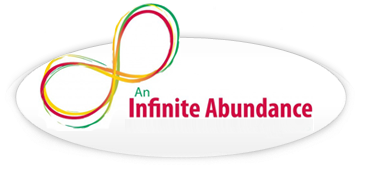Over the last few weeks, we have been discussing how Reiki Energy Healing can benefit specific groups. Last week, we focused on those who suffer with Autoimmune Disorders. This week, we continue the series for those suffering with depression and anxiety.
In the search for holistic and complementary therapies for mental health, Reiki Energy Healing has emerged as a promising practice for those grappling with depression and anxiety. This ancient Japanese technique, which focuses on channeling universal life force energy to promote healing and balance, has gained recognition to enhance emotional well-being and support traditional treatments.
Understanding Reiki and Its Foundations Reiki, derived from the Japanese words “rei” (universal) and “ki” (life energy), where life force energy flows through all living beings. A Reiki practitioner harnesses this energy to aid in relaxation, stress reduction, and the body’s natural healing processes. The practice involves a practitioner placing their hands on or near the recipient’s body, channeling energy to clear blockages and restore balance across the body’s chakras—energy centers associated with different aspects of our physical and emotional health, recent blog posts go into detail for each chakra.
The Potential Benefits of Reiki for Mental Health For individuals facing the challenges of depression and anxiety, Reiki offers a non-invasive and gentle approach to natural treatments. The calming nature of Reiki sessions can lead to a multitude of benefits, including:
Reduced stress and tension, which are often precursors to anxiety and depressive episodes. By promoting a state of deep relaxation, Reiki aims to restore a sense of equilibrium within the body and mind. It helps in reducing stress and promoting relaxation, which can alleviate symptoms of anxiety and depression. It activates the body’s self-healing mechanisms, leading to a state of peace and inner calm.
Improved mood and emotional balance by fostering a sense of peace and well-being. Reiki helps to reduce symptoms of depression and anxiety by promoting relaxation, enhancing well-being, and reducing stress. Recipients feel more centered and calm after Reiki sessions. Balancing the body’s chakras, or energy centers, Reiki can lead to emotional breakthroughs and aid in the release of energy blockages, contributing to improved mental health.
Enhanced relaxation and sleep quality, contributing to better overall mental health. Reiki activates the natural healing processes of the patient’s body and restores physical and emotional well-being. For those with depression and anxiety, Reiki offers a sense of calm and peace, helping to release negative emotions and thoughts, which can contribute to improved sleep quality. Reiki can help individuals fall asleep faster and enjoy a more restful sleep, which is crucial for mental health and emotional balance. Many have reported that regular Reiki sessions have helped them feel more centered and balanced, experiencing reduced stress levels and a greater sense of well-being.
Activation of the parasympathetic nervous system, leading to reduced heart rate and blood pressure, which are beneficial for those experiencing anxiety. The parasympathetic nervous system, which is responsible for the body’s rest and digest response. This activation is crucial for individuals suffering from depression and anxiety, as it can promote relaxation and reduce stress, leading to a reduction in heart rate and blood pressure. This process enhances the body’s natural healing capabilities, easing symptoms of depression and anxiety by promoting relaxation, improving sleep quality, enhancing mood, and increasing feelings of connectedness and spiritual awareness.
Reiki as a Complementary Therapy Reiki supports the mind-body connection, addressing the underlying energetic imbalances that contribute to mental health issues. By promoting deep relaxation and a positive mindset, regular Reiki sessions can lay a foundation for managing anxiety and depression more effectively.
The Role of Reiki in Self-Care Practices Self-care is an essential component of managing depression and anxiety. Reiki can be integrated into one’s self-care routine, offering a respite from the daily stresses that exacerbate mental health conditions. It encourages individuals to take an active role in their healing journey, empowering them with tools to maintain emotional equilibrium.
Reiki Energy Healing represents a bridge between traditional and alternative medicine, offering a serene oasis for those battling the turbulent waters of depression and anxiety. As we continue to embrace diverse approaches to mental health, Reiki stands out as a gentle yet powerful ally in the quest for emotional harmony and resilience.
See you next week!

